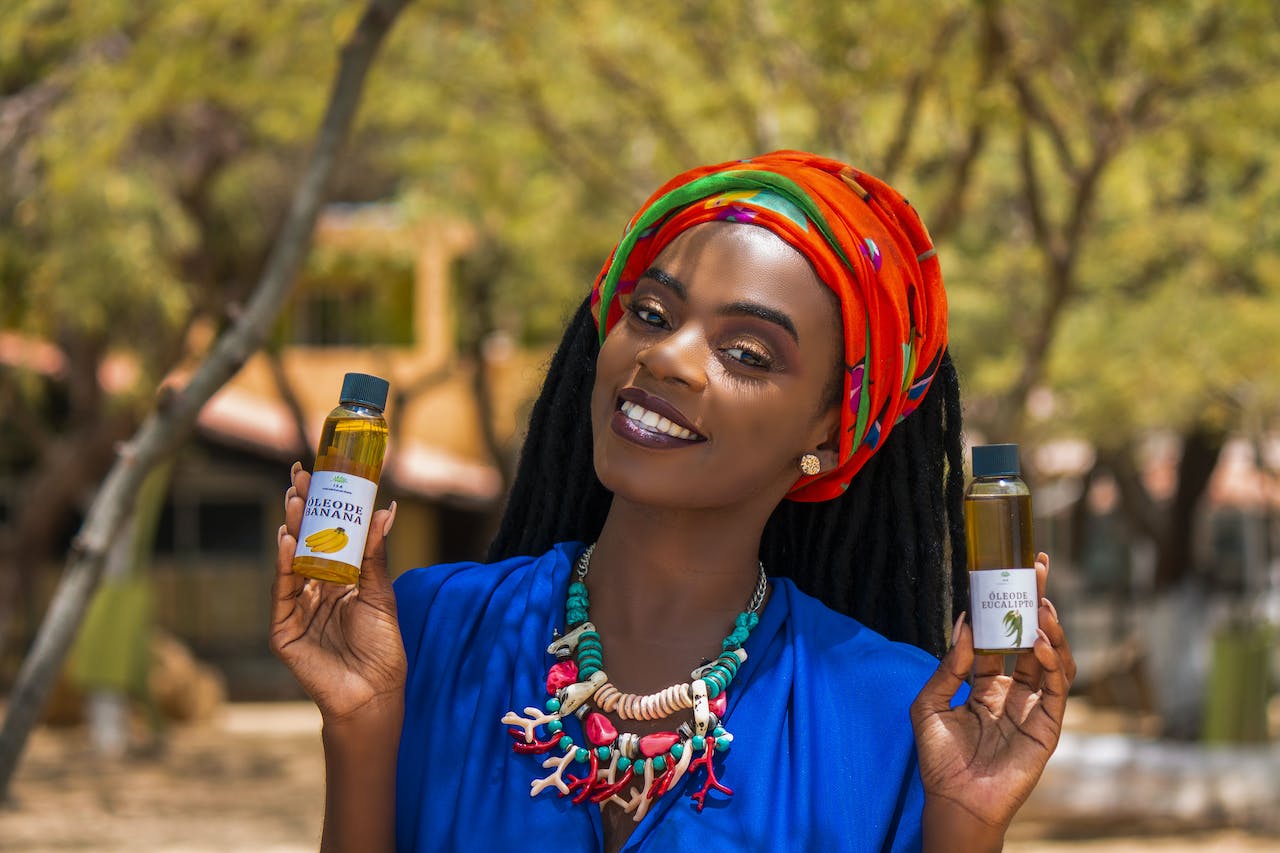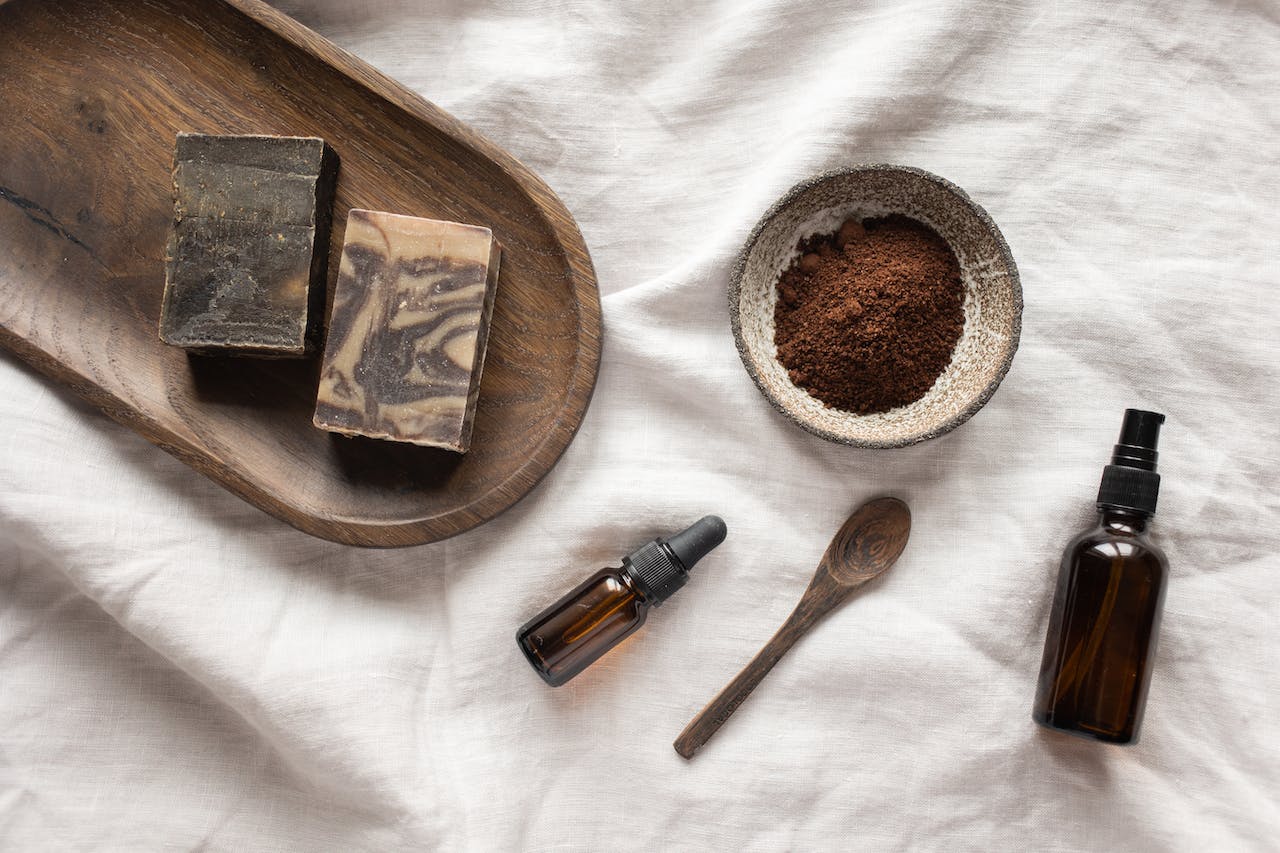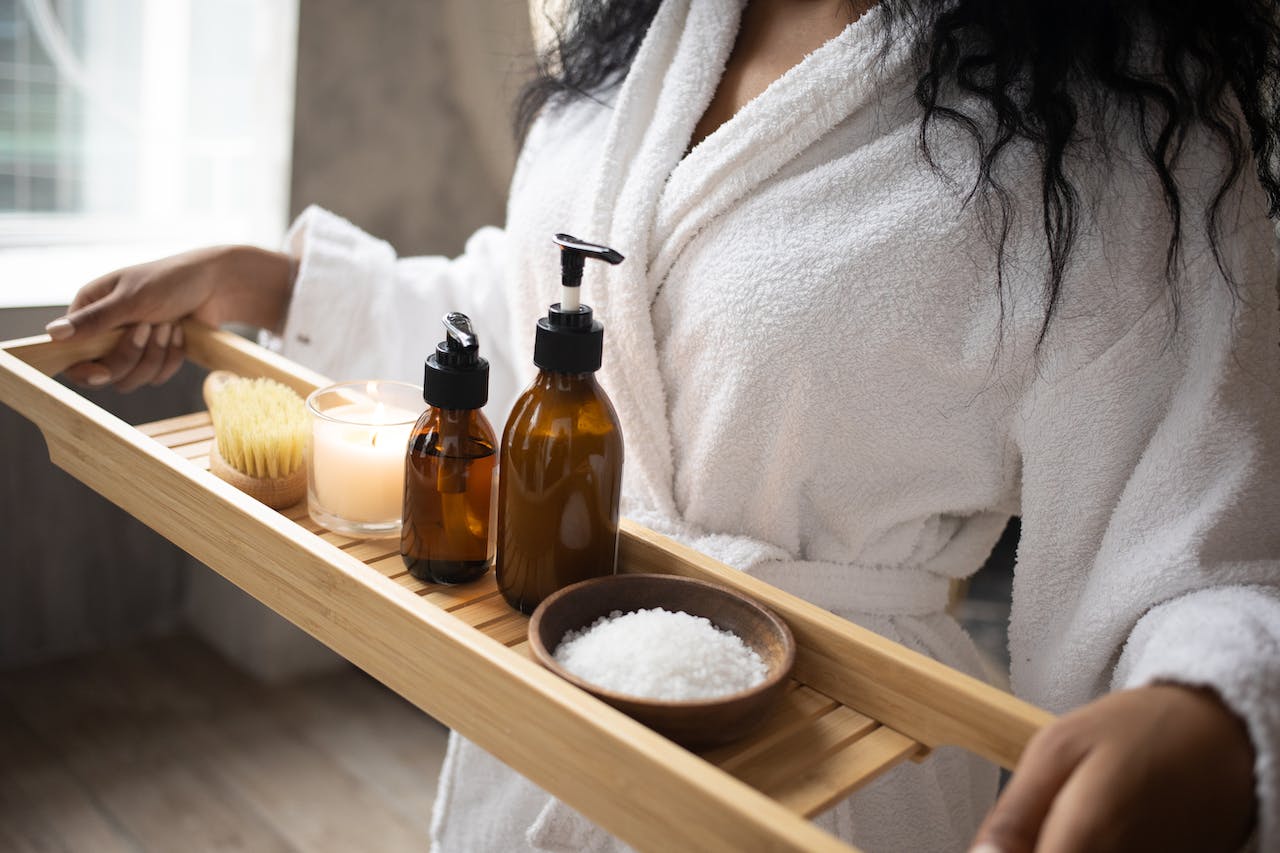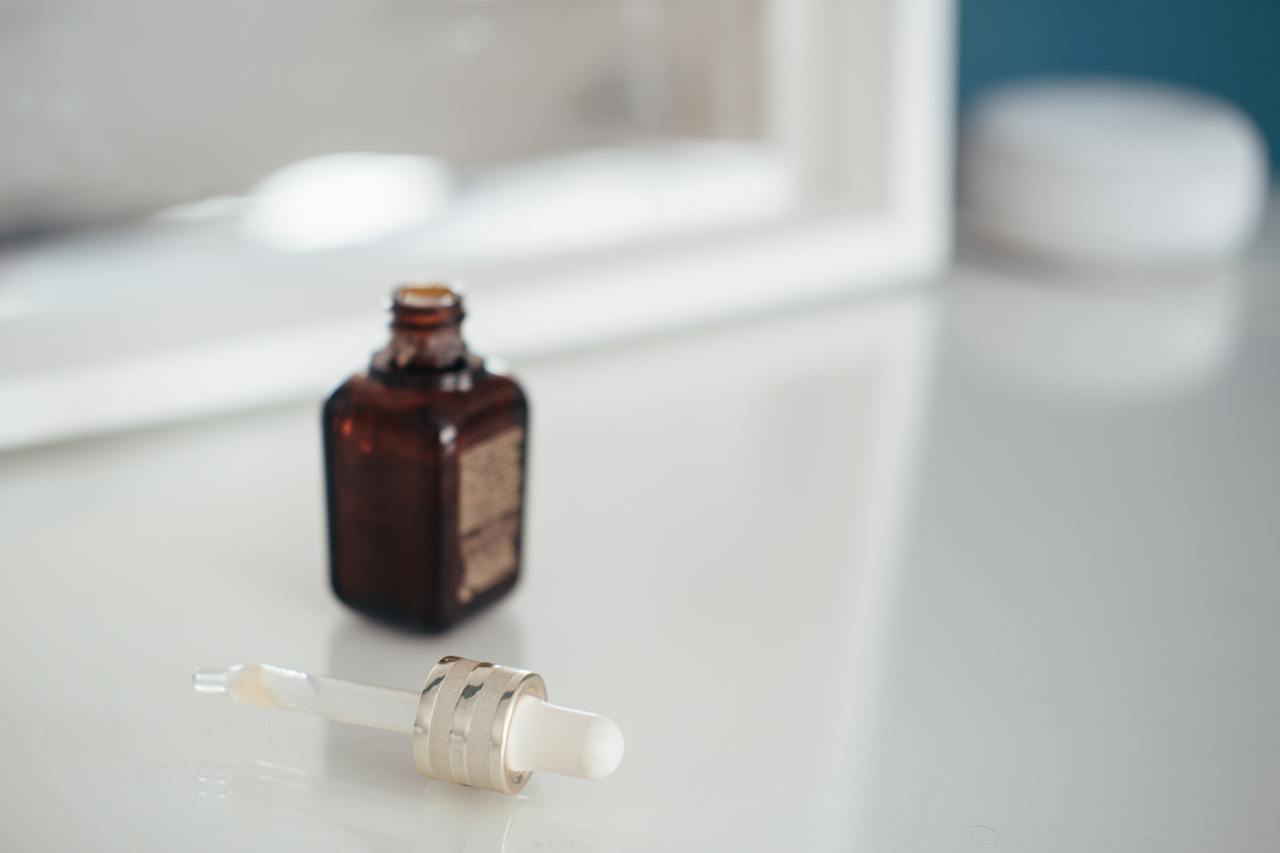Best 15 Essential Oils For Skin Care
Are you looking to enhance your skincare routine? Look no further than essential oils for skin care. Essential oils for skin care have gained immense popularity for their remarkable benefits. These oils are not only versatile but also effective in addressing various skin concerns.
Author:Suleman ShahReviewer:Han JuJan 25, 202495.3K Shares1.2M Views

The world of skincare is a vast and ever-evolving landscape, with countless products promising to rejuvenate and revitalize your skin. In the midst of this beauty frenzy, essential oilsemerge as powerful and natural allies for achieving a radiant complexion.
This article delves deep into the realm ofessential oils for skin care, exploring their origins, benefits, and the sciencebehind their effectiveness. From the popular lavender and tea tree oils to the lesser-known helichrysum and neroli oils, we'll uncover the secrets these botanical wonders hold for your skin.
What Are Essential Oils?
Before we embark on our journey into the world of essential oils for skincare, it's essential to understand what these oils are and how they are extracted. Essential oils are concentrated liquids containing volatile aroma compounds from plants.
The extraction process involves steam distillation, cold pressing, or solvent extraction, capturing the essence of the plant and its unique fragrance. These oils are not only aromatic but also renowned for their therapeutic properties, making them a staple in aromatherapy and skincare.
The Science Of Essential Oils And Skin - A Harmonious Relationship
To comprehend why essential oils have become synonymous with skincare, it's crucial to delve into the science behind their efficacy. Many essential oils boast antimicrobial, anti-inflammatory, and antioxidant properties.
For instance, tea tree oil is celebrated for its antibacterial prowess, combating acne and blemishes, while lavender oil's anti-inflammatory properties can soothe irritated skin. Understanding the chemical composition of these oils reveals their potential to address various skin concerns, offering a holistic approach to skincare.
How Oils Are Used For Skincare
Natural oils are used in many cosmetics and skincare products. Natural oils are popular because they are skin-friendly. Cleansers, moisturizers, face masks, soaps, face oils, serums, and more include natural oils.
Coconut oil and other natural oils may be applied straight to the skin. Be cautious while applying oils to your face, particularly if you have oily or acne-prone skin.
Natural oils are not essential oils. Essential oils are powerful and might irritate, so dilute them with a carrier oil. When using a new product, do a patch test to check for allergies.
15 Types Of Essential Oils For Skin Care
Lavender Oil - The Soothing Elixir
Lavender oil is renowned for its calming properties, making it an ideal choice for soothing irritated skin. With its anti-inflammatory and antimicrobial characteristics, it helps alleviate redness and promotes a sense of tranquility, making it a versatile essential oil for various skin concerns.
Tea Tree Oil - Nature's Acne Fighter
Tea tree oil stands out as a potent antibacterial essential oil, specifically effective in combating acne and blemishes. Its natural astringent properties help regulate oil production, making it a go-to solution for more transparent and healthier skin without the harsh side effects of commercial acne treatments.
Rosehip Oil - Youthful Radiance In A Bottle
Packed with essential fatty acids, vitamins A and C, and antioxidants, rosehip oil is a powerhouse for promoting skin regeneration and collagen production. Beyond reducing fine lines and wrinkles, it brightens the complexion, leaving the skin with a rejuvenated and youthful glow.
Frankincense Oil - Timeless Anti-Aging Remedy
Frankincense oil, with its rich history, serves as a timeless treasure for wrinkle reduction. Its astringent properties tighten the skin, diminishing the appearance of fine lines. By promoting cell turnover and collagen synthesis, it contributes to a smoother and more youthful complexion.
Helichrysum Oil - Golden Healing Essence
Often overlooked, helichrysum oil offers remarkable skin-healing properties. Its anti-inflammatory and antioxidant effects make it an ideal choice for addressing scars, sun damage, and age spots. Helichrysum oil promotes tissue regeneration, enhancing skin texture for a revitalized and radiant appearance.
Neroli Oil - Floral Fantasy For Brightening
It is derived from bitter orange blossoms; neroli oil is celebrated for improving skin tone and texture. With its antioxidant properties, it contributes to cell renewal, providing a sensory delight while promoting a luminous and brightened complexion. Incorporating neroli oil adds a touch of floral luxury to your skincare routine.
Peppermint Oil - Cooling And Invigorating
Peppermint oil's cooling sensation makes it a refreshing addition to skincare. With antimicrobial properties, it helps combat acne and refreshes the skin. Incorporate it into your routine for a rejuvenating experience and a revitalized complexion.
Chamomile Oil - Gentle Calm For Sensitivity
Chamomile oil, known for its gentle and calming nature, is perfect for sensitive skin. Its anti-inflammatory properties soothe irritation, making it suitable for conditions like eczema. This essential oil brings a sense of tranquility while nurturing and balancing delicate skin.
Eucalyptus Oil - Clearing Congestion And Acne
Beyond its well-known uses for respiratory issues, eucalyptus oil has benefits for the skin. Its antimicrobial properties aid in clearing acne and congestion. The invigorating aroma adds a refreshing element to your skincare routine.
Ylang-Ylang Oil - Balancing And Hydrating
Ylang-ylang oil strikes a balance by hydrating the skin without clogging pores. Its calming aroma also helps reduce stress, contributing to overall skin health. Incorporating ylang-ylang oil brings a harmonious blend of hydration and relaxation to your skincare regimen.
Geranium Oil - Skin Balancer And Enhancer
Geranium oil acts as a natural skin balancer, regulating oil production and promoting an even skin tone. Its astringent properties tighten the skin, reducing the appearance of fine lines. This versatile oil enhances the overall health and radiance of your skin.
Clary Sage Oil - Hormonal Harmony For Skin
Clary sage oil's hormone-balancing properties make it beneficial for skin affected by hormonal fluctuations. It helps control oil production and reduces inflammation, making it a valuable addition to skincare routines for those dealing with hormonal acne or uneven skin texture.
Jojoba Oil - Mimicking Skin's Natural Oils
Although technically a carrier oil, jojoba oil deserves mention for its similarity to the skin's natural oils. Rich in vitamins and minerals, it hydrates without clogging pores. Jojoba oil is an excellent choice for moisturizing and maintaining skin balance.
Sandalwood Oil - Aromatic Relaxation For Skin
Sandalwood oil, known for its distinctive aroma, offers more than just a pleasing scent. It has anti-inflammatory and astringent properties, making it beneficial for soothing irritated skin and promoting an overall sense of relaxation. Incorporating sandalwood oil adds a touch of aromatic luxury to your skincare routine.
Patchouli Oil - Regenerating And Healing
Patchouli oil is celebrated for its regenerative properties, aiding in the healing of scars and wounds. Its antifungal and antibacterial characteristics make it beneficial for addressing skin conditions. Patchouli oil adds a grounding element to your skincare routine, promoting both physical and emotional well-being.
Benefits Of Essential Oils
In the pursuit of radiant and healthy skin, essential oils emerge as natural treasures, offering a myriad of benefits that go beyond mere skincare. Integrating essential oils into your daily routine can revolutionize your skincare experience, providing a holistic approach to nourishing and rejuvenating your skin.
Moisturization And Hydration - Essential Oils For Skin Care
Essential oils play a pivotal role in moisturizing and hydrating the skin. Unlike some commercial moisturizers that may contain harsh chemicals, essential oils are rich in natural emollients that help lock in moisture.
Whether it's the silky texture of jojoba oil or the nourishing properties of rosehip oil, essential oils for skin careensure your skin stays hydrated, promoting a soft and supple complexion.
Antioxidant Protection - Essential Oils Shielding Your Skin
The antioxidative properties of essential oils contribute to the overall health and resilience of your skin. Essential oils like lavender and tea tree oil are packed with antioxidants that combat free radicals, reducing oxidative stress and preventing premature aging.
By incorporating these oils into your skincare routine, you create a protective shield against environmental pollutants, allowing your skin to thrive.
Calming And Soothing Sensation - Essential Oils For Skin Care Tranquility
One of the remarkable benefits of essential oils is their ability to evoke a sense of calm and relaxation. Lavender oil, in particular, is renowned for its soothing properties, making it an ideal solution for irritated or sensitive skin.
The gentle application of essential oils imparts a tranquil sensation, turning your skincare routine into a self-care ritual that nurtures both your skin and spirit.
Combatting Acne And Blemishes - Essential Oils As Nature's Warriors
Essential oils serve as potent allies in the battle against acne and blemishes. Tea tree oil, with its antimicrobial prowess, is a natural choice for addressing skin imperfections.
Regular application of essential oils for skincare, tailored to combat acne, helps cleanse pores, reduce inflammation, and prevent future breakouts. The result is more precise, healthier skin without the harsh side effects often associated with conventional acne treatments.
Cell Regeneration And Anti-Aging - Essential Oils Unveiling Timeless Beauty
The regenerative properties of essential oils contribute to anti-aging skincare routines. Essential oils like frankincense and helichrysum promote cell turnover, aiding in the reduction of fine lines and wrinkles.
By incorporating these oils into your daily regimen, you actively participate in unveiling timeless beauty, allowing your skin to age gracefully and maintain its youthful glow.
Aromatherapy For Skin And Mind - Essential Oils Elevating Your Mood
Beyond their physical benefits, essential oils engage the senses, providing an aromatic journey that elevates both your skin and mood. The incorporation of fragrant oils like neroli and ylang-ylang not only adds a delightful aroma to your skincare routine but also contributes to stress reduction and emotional well-being.
Essential oils for skincare become a sensory experience, turning your daily ritual into a spa-like indulgence.
Natural Healing For Skin Conditions - Essential Oils As Remedies
Essential oils have long been recognized for their healing properties in addressing various skin conditions. From the anti-inflammatory effects of chamomile oil for sensitive skin to the scar-healing prowess of helichrysum oil, these natural remedies offer tailored solutions.
Essential oils for skincare provide a gentle yet practical approach to alleviating specific skin concerns, contributing to overall skin health.
DIY Essential Oil Blends For Radiant Skin - Recipes And How-To
Embarking on a journey to achieve radiant skin can be both empowering and delightful. Creating your own DIY essential oil blends adds a personal touch to your skincare routine, allowing you to tailor solutions that cater to your unique needs.
Let's explore some simple yet effective recipes and a step-by-step guide on how to concoct these personalized blends using essential oils for skin care.
Recipe 1 - Calming Lavender Elixir
Ingredients
- Ten drops of Lavender Oil.
- Five drops of Chamomile Oil.
- Two tablespoons of Jojoba Oil.
How-To
- In a small amber glass bottle, combine the lavender and chamomile oils.
- Add the jojoba oil to the mixture, creating a soothing blend.
- Shake well before each use and apply a few drops to your face before bedtime for calming and hydrating effects.
Recipe 2 - Zesty Citrus Infusion For Morning Glow
Ingredients
- Eight drops of Grapefruit Oil.
- Six drops of Orange Oil.
- Four drops of Lemon Oil.
- One ounce of Almond Oil.
How-To
- Mix the grapefruit, orange, and lemon oils in a glass dropper bottle.
- Add the almond oil to the citrus blend, creating a refreshing infusion.
- Apply a small amount to your face in the morning to awaken your skin and provide a natural radiance.
Recipe 3 - Rejuvenating Rosehip Elegance
Ingredients
- 12 drops Rosehip Oil.
- Four drops of Frankincense Oil.
- Three drops of Geranium Oil.
How-To
- Combine the rosehip, frankincense, and geranium oils in a dark glass bottle.
- Gently shake the mixture to ensure an even distribution of the oils.
- Apply a few drops to your face and neck daily to promote cell regeneration and achieve a rejuvenated complexion.
Recipe 4 - Balancing Tea Tree Tonic
Ingredients
- Seven drops of Tea Tree Oil.
- Five drops of Lavender Oil.
- 2 drops Clary Sage Oil.
- 1-ounce Grapeseed Oil.
How-To
- Blend tea tree, lavender, and clary sage oils in a suitable container.
- Incorporate grapeseed oil into the mixture, creating a balancing tonic.
- Apply a small amount to areas prone to breakouts for a natural solution to combat acne and blemishes.
By embracing these essential oils for skin care recipes, you not only nourish your skin but also elevate your self-care routine. Experiment with different combinations to discover the blends that resonate most with your skin's needs, providing a radiant and personalized touch to your skincare regimen.
How To Use Essential Oils
Essential oils may be used topically or breathed. They shouldn't be consumed internally. Be sure you're not sensitive to the oils before applying them directly to your skin, and avoid getting them in your eyes by doing a patch test beforehand.
Applying a small quantity of diluted essential oil to your skin, such as your forearm, is called a "patch test." If you're worried about an allergic response, wait 24 hours before applying it to a broader region of skin.
Diffuser
Diffusers are becoming more used as a means to diffuse essential oils around a space so that their vapor may be inhaled. Aromatherapy is a common name for this kind of treatment.
While inhaling essential oils can be calming (or stimulating, depending on the oil), this isn't necessarily the best way to use them for your skin.
Massage Or Apply It Straight To The Skin
It is anticipated that topical use of essential oils will be the most effective method of treating skin disorders. A few drops of oil, at most, are used. Carrier oils like almond or olive oil should be used to dilute the essential oils before application.
For optimum effects, mix a few drops with a tablespoon of carrier oil and massage into the skin until absorbed.
Bath
Many skin disorders respond well to bathing in essential oils, and this is particularly true for treating more inaccessible regions like the back. A bath with as little as ten drops of oil is all that's needed. The oils in the tub may make the floors slippery, so be careful when you get out.
Cautions & Essential Oils Safety
Essential oils have many uses, and it's crucial to use them properly to get their advantages. Always dilute them first, learn about the possible side effects from exposure to the sun after using them, and get them from a reputable, trustworthy company.
External Use Only
As with all other New Directions Aromatics products, essential oils are for external use only. Never use an essential oil for your eyes, nose, ears, or any other sensitive skin regions. Before utilizing these oils therapeutically, it is essential to speak with a medical professional.
Phototoxicity
Avoid sun exposure for a minimum of 12 hours after topically using Bergamot Essential Oil, Grapefruit Essential Oil, Lemon Essential Oil, and any other phototoxic oils.
Pregnancy And Other Health Conditions
Avoiding essential oils altogether is recommended for pregnant and nursing mothers. Patients with cancer, heart disease, skin diseases, allergies, hormonal abnormalities, or epilepsy should seek medical attention as soon as possible.
Stroke, heart attack, and atherosclerosis risk factors, as well as anyone who takes prescription medications or is scheduled for major surgery, should see a doctor before using this product.
Children And Safety
Always keep these oils in a secure location out of the reach of children, particularly those less than seven years old.
How To Conduct A Skin Patch Test
Prior to utilizing any essential oil, a skin test is suggested. To achieve this, mix one drop of the essential oil with four drops of the carrier oil and apply the resulting mixture to a tiny area of non-sensitive skin, no larger than a dime.
Essential Oils For Skin Care - FAQs
What Are Essential Oils For Skin Care?
Essential oils for skin care are concentrated extracts from plants that contain natural compounds with various therapeutic properties. These oils are commonly used to address specific skin concerns and promote overall skin health.
What Are The Best Essential Oils For Skin Care?
With the correct essential oils, you can manage excess sebum and restore equilibrium. Tea tree oils are antibacterial and astringent, leaving skin clean and fresh. Geranium, neroli, and rosemary are also suitable for oily skin.
Which Oil Is Best For Skin Whitening?
Lavender essential oil is excellent for dry and regular skin. It heals skin, soothes nerves, and stops hyperpigmentation. Whiten oily skin overnight with lavender essential oil. Sandalwood oil is a great toner and face pack.
Which Essential Oil Removes Sun Tan?
Lemon Essential Oil may eliminate sun tan in a week, while sandalwood has natural skin-lightening ingredients. How to use: Mix a few drops of lemon essential oil with Chandan and pure rose water to produce a paste. Apply liberally on the face and tanned skin.
Can I Rub Essential Oils On My Skin?
Essential oils are often employed as components in sophisticated skincare formulas. However, most may also be administered individually as required to the skin. Some, but not all, essential oils might cause discomfort when applied straight to the skin, but there's a simple workaround: carrier oils.
Considering All This
Essential oils for skin care offer a natural and holistic approach to achieving and maintaining radiant skin. From the calming embrace of lavender oil to the acne-fighting prowess of tea tree oil, each essential oil brings its unique benefits to the skincare table. The science behind these oils underscores their efficacy, providing a compelling reason to incorporate them into your daily routine.
As you navigate the world of essential oils, remember that skincare is a personal journey. Tailor your approach, experiment with blends, and revel in the sensory experience these botanical wonders offer. Essential oils for skincare aren't just about addressing surface concerns; they represent a harmonious connection between nature and self-care.
So, embark on this aromatic adventure, and let the essence of nature unveil the radiant skin that lies beneath. Your skin deserves the tender, loving care that only essential oils do.
Jump to

Suleman Shah
Author
Suleman Shah is a researcher and freelance writer. As a researcher, he has worked with MNS University of Agriculture, Multan (Pakistan) and Texas A & M University (USA). He regularly writes science articles and blogs for science news website immersse.com and open access publishers OA Publishing London and Scientific Times. He loves to keep himself updated on scientific developments and convert these developments into everyday language to update the readers about the developments in the scientific era. His primary research focus is Plant sciences, and he contributed to this field by publishing his research in scientific journals and presenting his work at many Conferences.
Shah graduated from the University of Agriculture Faisalabad (Pakistan) and started his professional carrier with Jaffer Agro Services and later with the Agriculture Department of the Government of Pakistan. His research interest compelled and attracted him to proceed with his carrier in Plant sciences research. So, he started his Ph.D. in Soil Science at MNS University of Agriculture Multan (Pakistan). Later, he started working as a visiting scholar with Texas A&M University (USA).
Shah’s experience with big Open Excess publishers like Springers, Frontiers, MDPI, etc., testified to his belief in Open Access as a barrier-removing mechanism between researchers and the readers of their research. Shah believes that Open Access is revolutionizing the publication process and benefitting research in all fields.

Han Ju
Reviewer
Hello! I'm Han Ju, the heart behind World Wide Journals. My life is a unique tapestry woven from the threads of news, spirituality, and science, enriched by melodies from my guitar. Raised amidst tales of the ancient and the arcane, I developed a keen eye for the stories that truly matter. Through my work, I seek to bridge the seen with the unseen, marrying the rigor of science with the depth of spirituality.
Each article at World Wide Journals is a piece of this ongoing quest, blending analysis with personal reflection. Whether exploring quantum frontiers or strumming chords under the stars, my aim is to inspire and provoke thought, inviting you into a world where every discovery is a note in the grand symphony of existence.
Welcome aboard this journey of insight and exploration, where curiosity leads and music guides.
Latest Articles
Popular Articles



